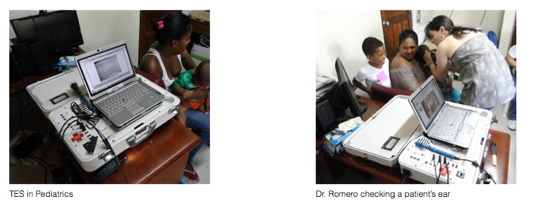People affected by a rare, inherited form of dwarfism virtually never get diabetes or cancer, scientists have reported. Their findings may someday open up new ways to treat or prevent both conditions.
The scientists are Jaime Guevara-Aguirre, an Ecuadorean physician, and Valter Longo, a cell biologist from USC. They collaborated to study a cohort of about 100 Ecuadoreans that had Laron syndrome, an extremely rare condition caused by a gene mutation that prevents their bodies from responding properly to growth hormone.
Guevara-Aguirre had been following the cohort for more than 2 decades. He and Longo reviewed his notes and found exactly one nonfatal case of cancer and zero cases of diabetes. By comparison, the scientists’ review of 1,600 relatives, who also resided in Ecuador, revealed that 5% of them developed diabetes and 17% developed cancer. These incidence rates matched those found in the general population.
The absence of diabetes was particularly remarkable since the Laron cohort had higher obesity rates than their non-affected relatives, and obesity is a risk factor for the disease.
To figure out why Laron dwarfs almost never got diabetes or cancer, the scientists performed genetic analyses on samples of their blood and saliva. They found that family members with the condition had lower levels of IGF-1 (insulin-like growth factor 1), a chemical that plays a central role in growth during childhood. Laron patients also had lower blood insulin levels and increased sensitivity to insulin.
In their write-up, the scientists hypothesized that low levels of IGF-1 and insulin could have reduced oxidative damage to DNA. Similar phenomena increase life expectancy in worms, yeast and mice, the scientists said. However, they could not conclude that this was the correct explanation for the observed low rates of cancer and diabetes.
If their hypothesis proves to be correct, it suggests that dietary- or drug-based strategies could be used to tackle the diseases. IGF-1 levels are known to fall in people who fast, or restrict protein intake for several days, for example.
Of course these dietary strategies are fraught with risks, but a drug that reduces the effects of growth-hormone (once a person is fully grown) might hold promise.
As it turns out, Pfizer’s Somavert does just this. The drug is now used to treat acromegaly and gigantism. Longo has approached Pfizer to explore the possibility of sponsoring clinical trials to test this drug for the new applications mentioned above.
Sad Side Note: Although the Laron dwarfs in this study never got cancer or diabetes, they did not outlive their relatives. It turns out that substance abuse and accidents are endemic in that community, and they end-up being an unfortunate equalizer when it comes to life expectancy.

